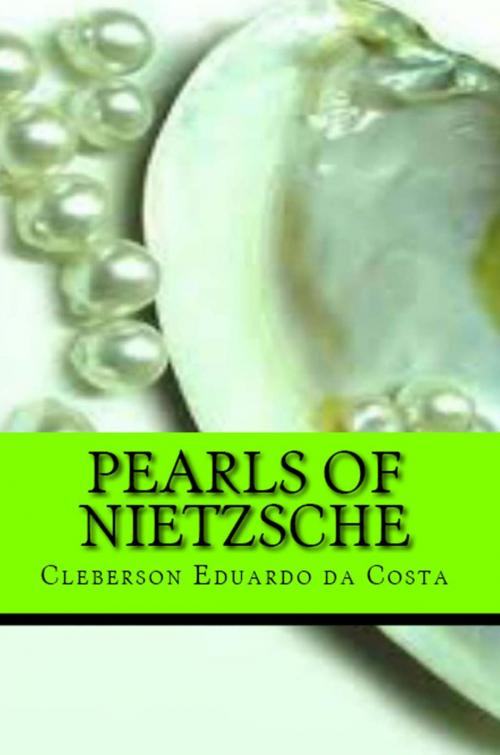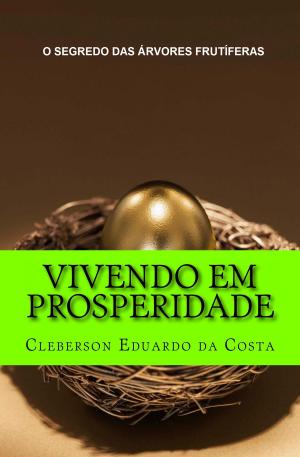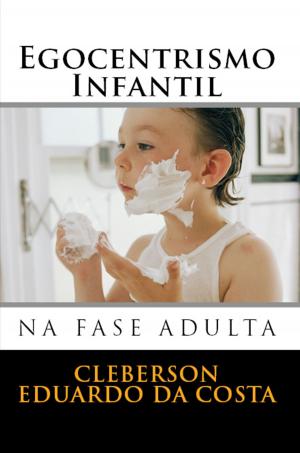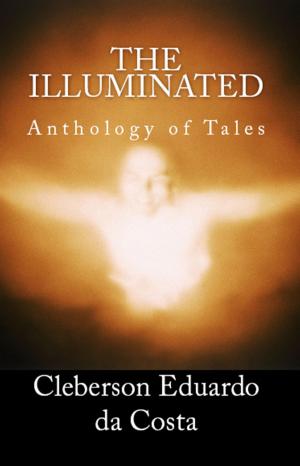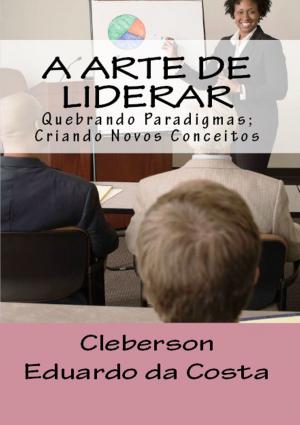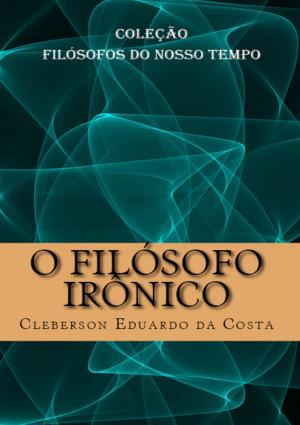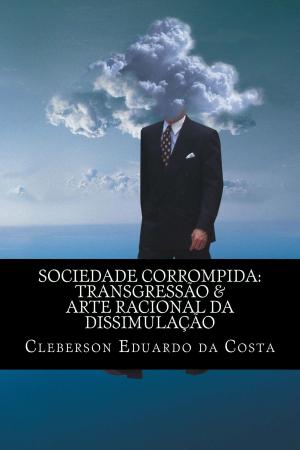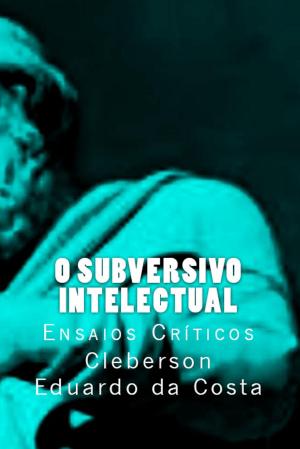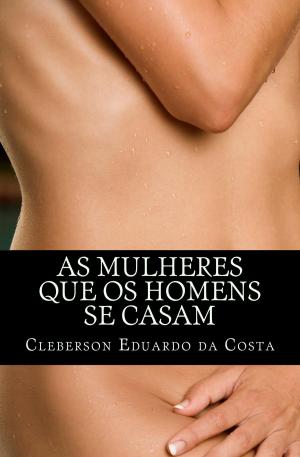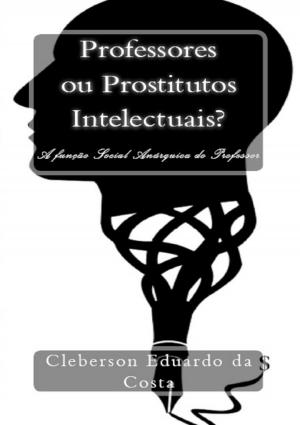PEARLS OF NIETZSCHE
Nonfiction, Science & Nature, Science, Other Sciences, Reference, Study & Teaching, Philosophy & Social Aspects| Author: | CLEBERSON EDUARDO DA COSTA | ISBN: | 1230000269525 |
| Publisher: | ATSOC EDITIONS | Publication: | September 21, 2014 |
| Imprint: | 1 | Language: | English |
| Author: | CLEBERSON EDUARDO DA COSTA |
| ISBN: | 1230000269525 |
| Publisher: | ATSOC EDITIONS |
| Publication: | September 21, 2014 |
| Imprint: | 1 |
| Language: | English |
(A5, 171 P.)
I am not here to claim to elucidate and neither to explain Nietzsche, a time that, I believe that, even in such a complex and unwieldy that it is cannot be translated. I think that everyone who has the desire to translate Nietzsche is also in danger of betraying it.
My purpose here is only promote the dialog and the problematization of matters that, in my view, has been placed incorrectly and/or hijacked by some so-called philosophers post-modern about the main axioms of Nietzsche.
Nietzsche, even though they do not know many, criticizes the moral Judeo-Christian and also the auspices of science with regard to the pursuit of this truth . However, his criticism, in no time, the puts on condition that makes apology to obscenity and creation of new dogmas to be put as said new truths.
In unit I , will speaks, in the light of arguments sociological of Durkheim, Max Weber and others, founded also in the visions criticism of Nietzsche, on the tragic cases of castration of subjectivities transcendent, started in the modern era, to erect this in opposition to the so-called, for they, dogmatic moral Judaeo-Christian tradition, putting themselves, however, in its place, tragically, also the now new dogmas of science. In unit II , we will discuss the propositions of Nietzsche relating to the so-called necessary, for him , the existence of "three transformations in the spirit" by which should and/or should become the modern individuals (now post-modern), a kind of redemptive path against the dogmas both of essence Judaeo-Christian as scientific. In unit III, we will present some of the main axioms of Nietzsche, "problematizend" them, confronting them and allocating to the new requirements of intelligibility, logic and/or contemporary consistency.
In unit IV, we present a thorough selection of the main axioms Nietzsche.
(A5, 171 P.)
I am not here to claim to elucidate and neither to explain Nietzsche, a time that, I believe that, even in such a complex and unwieldy that it is cannot be translated. I think that everyone who has the desire to translate Nietzsche is also in danger of betraying it.
My purpose here is only promote the dialog and the problematization of matters that, in my view, has been placed incorrectly and/or hijacked by some so-called philosophers post-modern about the main axioms of Nietzsche.
Nietzsche, even though they do not know many, criticizes the moral Judeo-Christian and also the auspices of science with regard to the pursuit of this truth . However, his criticism, in no time, the puts on condition that makes apology to obscenity and creation of new dogmas to be put as said new truths.
In unit I , will speaks, in the light of arguments sociological of Durkheim, Max Weber and others, founded also in the visions criticism of Nietzsche, on the tragic cases of castration of subjectivities transcendent, started in the modern era, to erect this in opposition to the so-called, for they, dogmatic moral Judaeo-Christian tradition, putting themselves, however, in its place, tragically, also the now new dogmas of science. In unit II , we will discuss the propositions of Nietzsche relating to the so-called necessary, for him , the existence of "three transformations in the spirit" by which should and/or should become the modern individuals (now post-modern), a kind of redemptive path against the dogmas both of essence Judaeo-Christian as scientific. In unit III, we will present some of the main axioms of Nietzsche, "problematizend" them, confronting them and allocating to the new requirements of intelligibility, logic and/or contemporary consistency.
In unit IV, we present a thorough selection of the main axioms Nietzsche.
